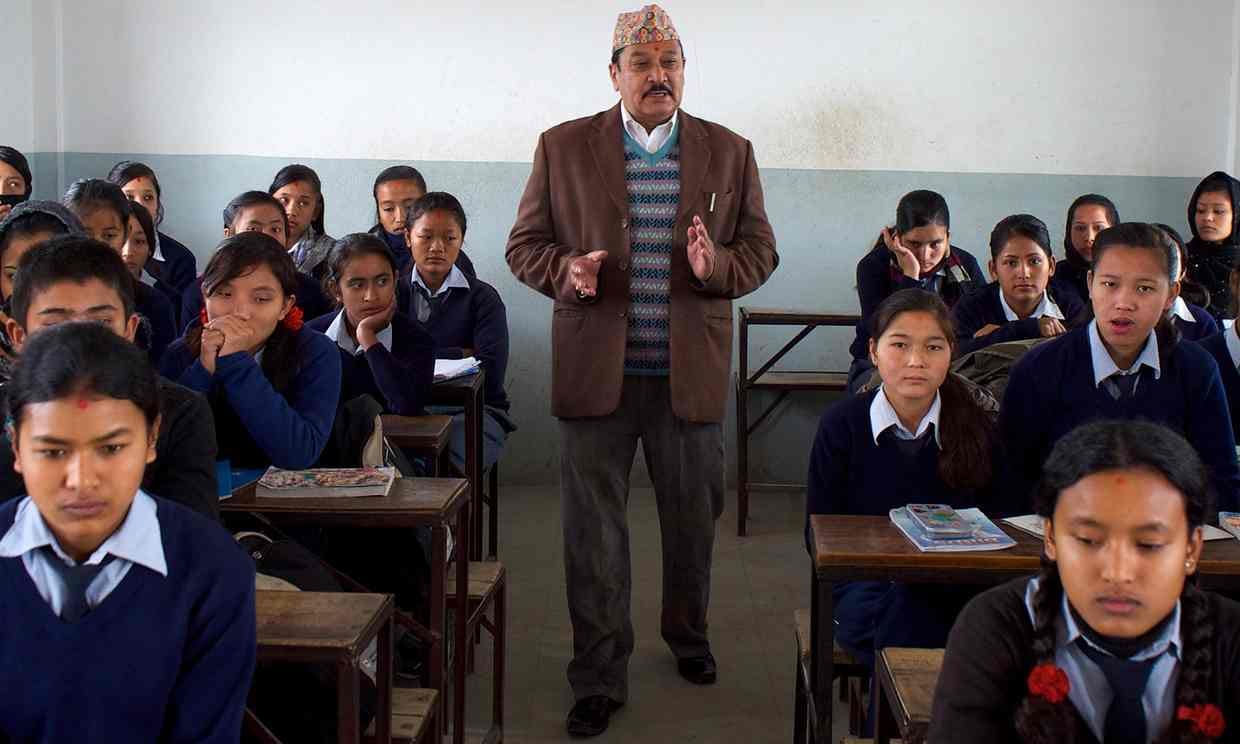NEWS
December 11, 2014

IN BRIEF
By: Pete Pattisson. This article was originally published by The Guardian. A reality TV contest is aiming to change the corruption and incompetence that pervade Nepal’s civil service – but it has a long way to go While millions of Britons settle down on their sofas to choose the winner of The X Factor this weekend, Nepalese will be busy voting in their own television competition. But unlike other versions of perennially popular talent contests, the winner will not be the best singer or dancer, but the most honest civil servant in the country, in a competition called Integrity Idol. [...]
SHARE
By: Pete Pattisson. This article was originally published by The Guardian.
A reality TV contest is aiming to change the corruption and incompetence that pervade Nepal’s civil service – but it has a long way to go
While millions of Britons settle down on their sofas to choose the winner of The X Factor this weekend, Nepalese will be busy voting in their own television competition. But unlike other versions of perennially popular talent contests, the winner will not be the best singer or dancer, but the most honest civil servant in the country, in a competition called Integrity Idol.
The contest is an attempt to address the perception of widespread corruption among Nepal’s civil servants and encourage greater integrity in the profession, in a country where bribery and backhanders are considered a part of everyday life. Last week Nepal slipped to 126th out of 175 countries in Transparency International’s global corruption perceptions index.
After a nationwide campaign, Integrity Idol has been whittled down to five finalists, from more than 300 nominations from across the country. They include a district education officer who shares his phone number with students so they can tell him when their teachers are absent, and a social worker who works in such a remote district that she has to walk for three days to reach some villages.
The finalists were grilled by a panel of young people for a half-hour show that was broadcast on television. Viewers can vote for their favourite contestant by text, email or via Facebook and YouTube likes. The results are expected to be announced early in the new year.
It is a far cry from the glamour of the X Factor final. There are no celebrity judges or weeping losers. There’s not even an audience. Instead, London’s Wembley Arena is replaced by a small, dark recording studio, and Dermot O’Leary’s counterpart struggles to get through his lines, even with the help of a teleprompter.
But this has not dampened the enthusiasm of one of the finalists, Prem Kumar Khadka, a school principal. “I feel very good. My happiness knows no bounds,” says Khadka, 58, who has taught in the same government school on the outskirts of the capital Kathmandu for more than 35 years. “The dedication, devotion and honesty towards my work has eventually paid off.”
Another finalist, Bhuvan Kumari Dangol, has been teaching nursing students for 17 years. “It’s a huge achievement for me to be selected in the top five … I come from a lower middle-class family, so what I am doing is a new step in my family,” says Dangol, who has worked in nursing for almost 25 years. “I feel my work is not just a way to make money, it is also a service to people.”
The contest, which is being organised for the first time, is an initiative of Accountability Lab, a non-government organisation that helps local groups and citizens demand greater accountability from their government. “If you ask today’s generation about government jobs, few want to join, and those who do just see it as an easy option with a good pension,” says Narayan Adhikari, Accountability Lab’s south Asia representative. “With Integrity Idol, in 10 years we want to see a young generation of civil servants who will say, we want to win the award, and to do this we have to do good work and maintain our integrity and accountability.”
For the finalists, Integrity Idol is not just a way to change the reputation of the civil service, but an opportunity to boost the self-esteem of honest government officials who feel their efforts go unrecognised.
“I think it’s good that they are honouring our hard work … The morale of civil servants is going down because they do not get respect, no matter how hard they work. This competition can make a difference by showing there is someone who respects their work,” Khadka says. “It will definitely change the attitudes among civil servants.”
Dangol is a little less optimistic. “I can’t say this competition will change this or that particularly, but it shows respect towards us,” she says. “We females are more involved in the nursing profession, so it will work as a motivation for other nurses, as well [as] earn[ing] us respect from the public.”
If Integrity Idol is to change the corruption and incompetence that pervades Nepal’s civil service, it still has a long way to go. “Corruption really is a serious problem, especially in politics, education, health and in the delivery of services by public servants,” said Bharat Bahadur Thapa, president of Transparency International Nepal. “The main thing is that the commitment [to tackle the problem] is not sufficient, especially in the political sector.”
Transparency International Nepal runs an integrity award for individuals who have made a positive contribution to fighting corruption, but this year the accolade was not awarded. According to Thapa, they could not find anyone who deserved it. As Simon Cowell might say: “There are only so many words that I can drag out of my vocabulary to say how awful that is.”
